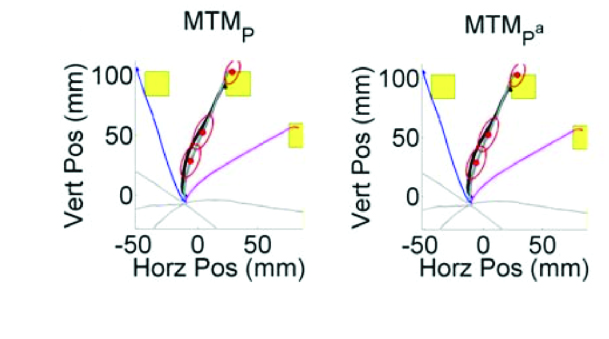I develop novel machine learning theory and methods for problems that would otherwise be intractable. My current research focuses on the problems of deep learning, probabilistic modeling and transfer learning. Throughout my career I have applied the theory and methods I've developed to solving problems in basic and clinical neuroscience.
Deep Probabilistic Model Synthesis
(Current research)
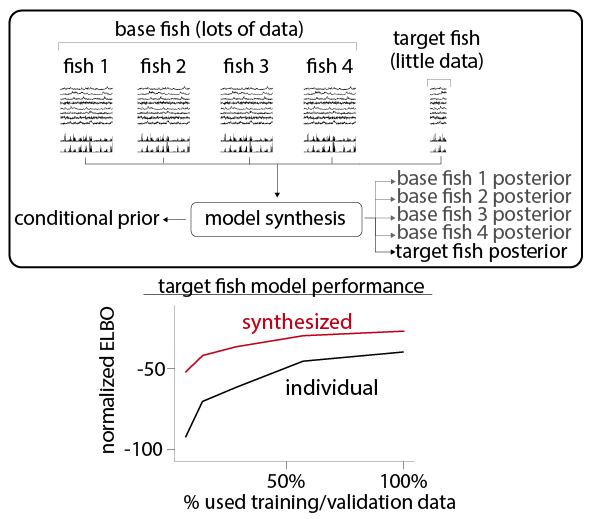
William Bishop, Luuk Hesselink, Bernhard Englitz, James Fitzgerald and Misha Ahrens
We are developing methods to learn in-silico models of complex systems, such as the brain, using data observed from many examples of the same system (e.g., brains of different individuals), each with their own variability. Using deep learning and variational inference, our approach discovers general model structure (e.g., a model for a ``generic'' brain) as well as the unique structure of each example system (e.g., models describing the unique aspects of each brain). The resulting models are more accurate and account for a greater range of behaviors than models fit to individuals in isolation.
Single Manifold Identification and Latent Estimation
(Current research)

William Bishop, Adam Zandvakili, Xiao Zhou, Steven Chase, Adam Kohn and Byron Yu
We are developing theory and an algorithm for tracking the state of neural population activity from sets of neurons recorded at different times by identifying the joint manifold underlying their shared activity patterns. Importantly, the developed methods are robust when distributions of neural activity and the manifold change across time. We demonstrate the potential of our methods for studying multiple scientific questions, which might otherwise be difficult to approach with current limitations in recording technologies.
Stabilization of a Brain-Computer Interface Via the Alignment of Low-Dimensional Spaces of Neural Activity
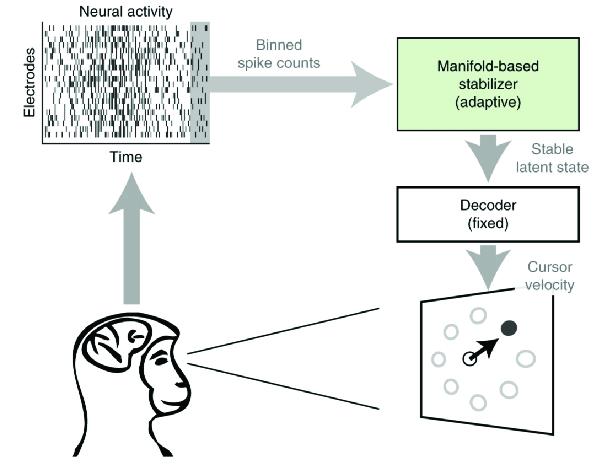
Alan Degenhart† , William Bishop† , Emily Oby, Elizabeth Tyler-Kabara, Steven Chase*, Aaron Batista*, and Byron Yu*, Nat. BME, 2020
†, * denotes equal contribution
We develop an unsupervixed method for extracting stable neural signals for any brain-computer interface (BCI) decoder from unstable recordings by identifying and aligning manifolds of neural activity across time. We demonstrate the effectiveness of our approach through numerous closed-loop BCI experiments.
Deterministic Symmetric Positive Semidefinite Matrix Completion
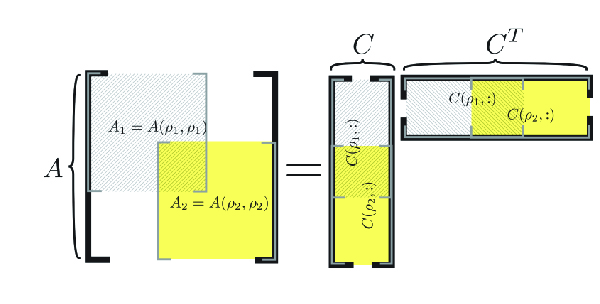
William Bishop and Byron Yu, NeurIPS, 2014
We present necessary and sufficient conditions and an algorithm for completing SPSD matrices, such as covariance matrices, when they are only partially observed. We derive a bound on reconstruction accuracy in the presence of noise. The developed theory forms a basis for understanding when it is possible to combine datasets with only some variables in common.
Self-Recalibrating Classifiers for Intracortical Brain Computer Interfaces
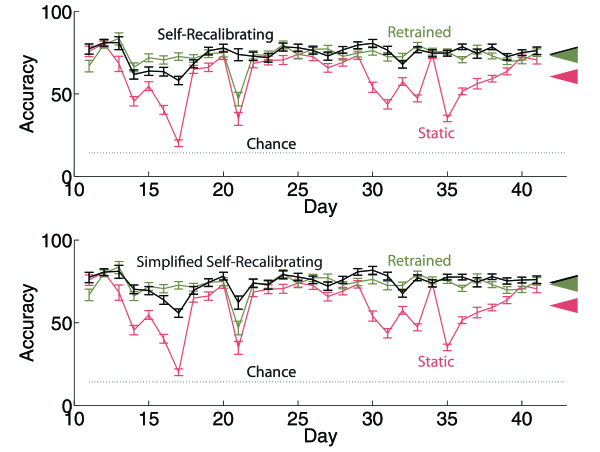
William Bishop, Cindy Chestek, Vikash Gilja, Paul Nuyujukian, Justin Foster, Stephen Ryu, Krishna Shenoy and Byron Yu, J. Neural Eng., 2014
We present the first self-recalibrating classifier for intracortical BCI use. We demonstrate that it can rescue BCI performance in the face of recording instabilities and nearly match "gold standard" performance previously possible only with daily supervised retraining.






